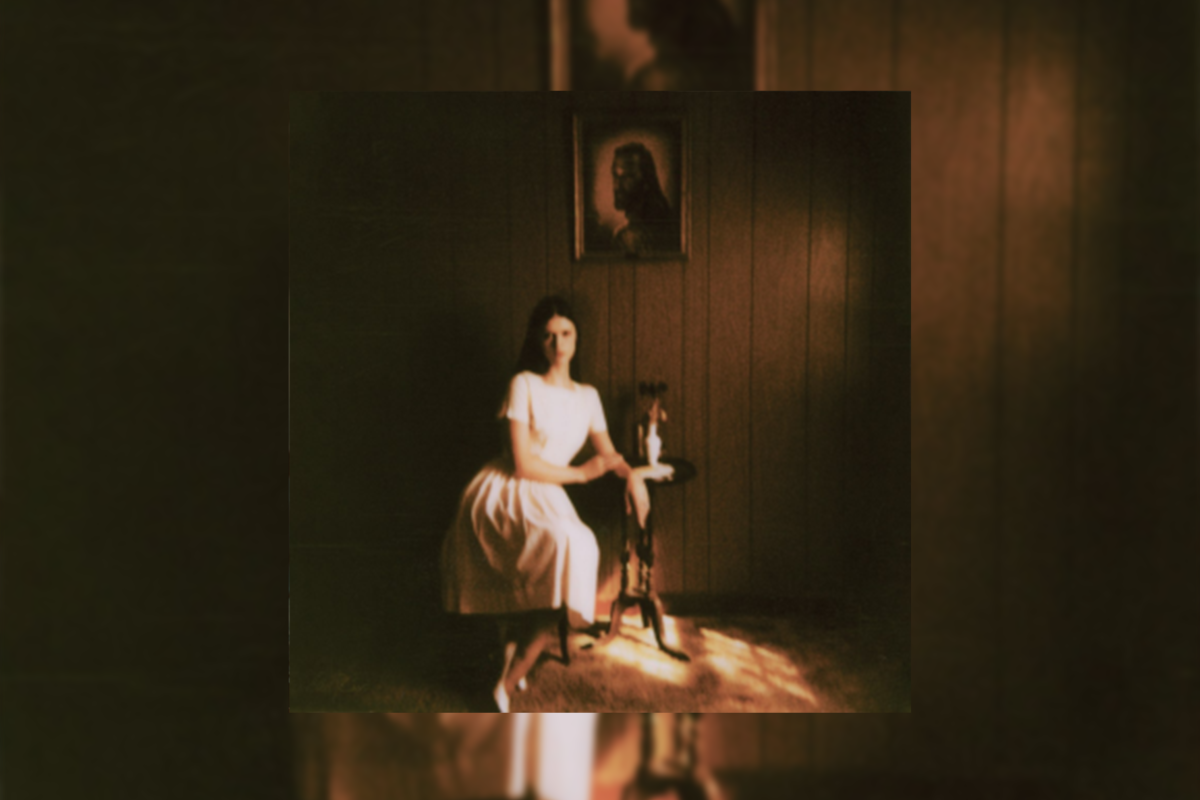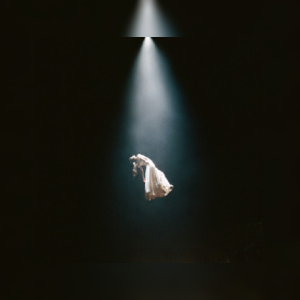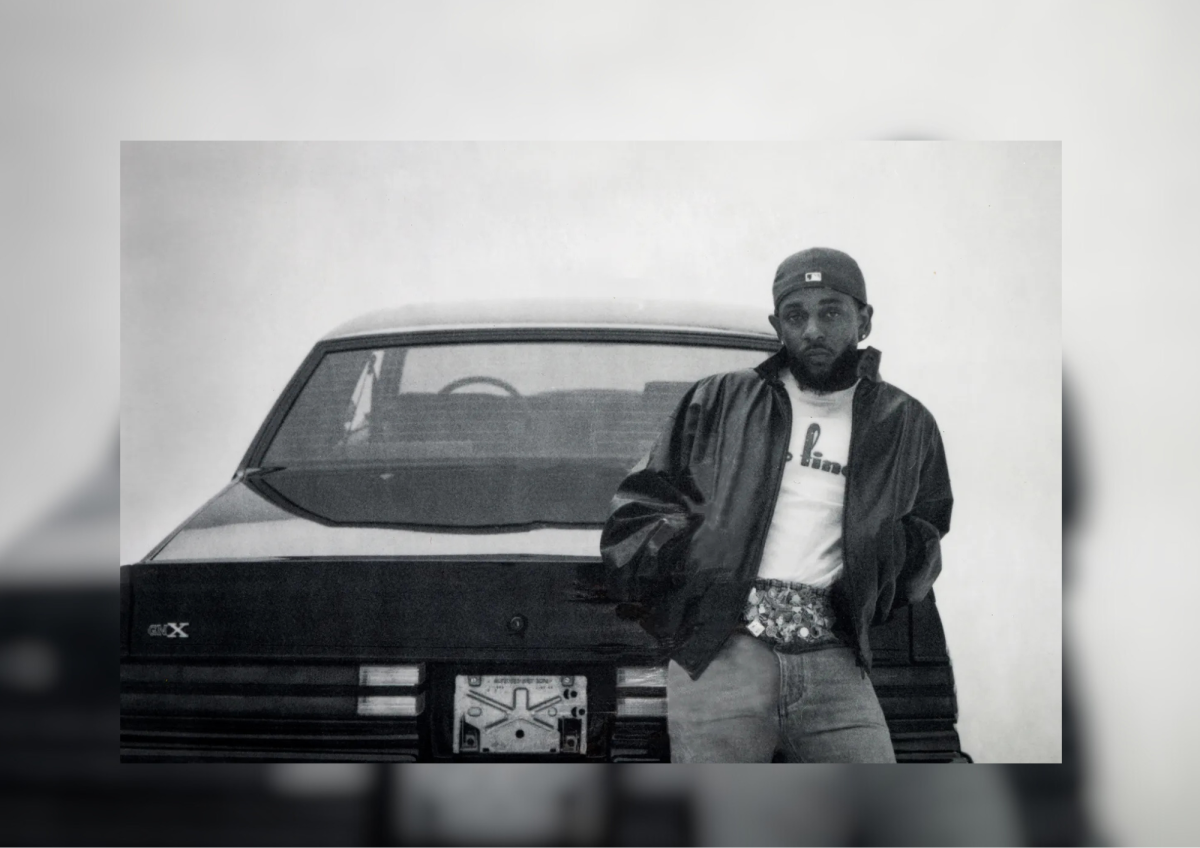Ethel Cain’s “Preacher’s Daughter” is a concept album — a story told by a girl who exists in an afterlife reflecting on her former life after she was violently murdered and cannibalized by one of her lovers. It’s a coming-of-age, queer story where religious trauma inflicts the main character and results in her ultimate death.
The album opens with a track titled, “Family Tree (Intro),” an introduction to the album’s fifth song, entitled “Family Tree.” It begins with the faint noise of a preacher speaking inaudibly in the background. When the drums come into the track, the song rises from the dead — unlike her character. Cain’s second verse reads, “Jesus can always reject his father, / But he can’t escape his mother’s blood,” symbolizing the idea of generational trauma. In this particular case, it’s deep-rooted and sort of parallel because it’s religion-based trauma.
Following “Family Tree (Intro)” is “American Teenager.” The song gives me “American Honey” vibes. It’s the reality of being a child in America and when listening closely to the lyrics, it’s so tragic. Some of my favorite moments are when artists have an upbeat production but upsetting lyrics. It’s a sort of cognitive dissonance for the listener’s ears. The lyrics, “the neighbor’s brother came home in a box, / but he wanted to go, / so maybe it was his fault,” depict her neighbor being a soldier who died in the war, but because he chose to go to war, maybe it was always his fate. It’s that cruel and critical idea of the American dream that sets this song ablaze.
My favorite track on the album remains the seven-minute-long fifth track, “Family Tree,” solely because Cain’s vocals are otherworldly. Her work is so alluring I’ve found it difficult to shift from her music to something else. I feel stuck inside the story of this preacher’s daughter. I believe this track is about her struggle with God and the difficulties of fitting in with her religious community. Everything will be okay if they just drag her out by the back of her ankles to the church.
The lyrics, “take me down to the river / and bathe me clean. / Put me on the back of your white horse / to ride / all the way to the chapel, / let you wash all over me,” speak quite beautifully and psychosomatically. She’s torn between the image of herself and what her parents believe and expect of her. Perhaps, if she’s complacent, they can fix whatever sin has been brought upon her. Towards the end of the track, she’s almost pleading and then screaming for help.
When the track shifts and the electric guitar comes into the picture alongside the beat of the drums, you can’t help but feel converted into her world. With its haunting mood and the pickup of her vocals, the song takes you alongside its ride.
Another one of my favorite tracks is the sixth track, titled “Hard Times.” The sound of crickets at the beginning of the track complements this song beautifully along with her soothing humming. Suddenly, you’re transformed into a world in the woods, on a back patio, or in a Florida room late at night. To me, it’s a heartbreaking story about her father, the preacher. The lyrics, “I was too young to know, / that sometimes good love could be bad,” leave the character reflecting on her relationship with her father and the other men she encountered along the way.
Not only did her father let her down, but the other men in her life didn’t do her any justice either. When the drums settle in, the mood shifts and it’s even more upsetting and heartbreaking. She writes, “Praying I’d be like you.” She believes that if only she could be similar to her father, who seems to have found his way through God, she could be saved and redeemed. But, she can’t and she won’t.
Toward the end of the track, we get a repetition of the lyrics, “I’m tired of you / still tied to me.” She cannot help but wish she didn’t have her father’s words and ideals in the back of her head or the past trauma that he has caused her. She wants to be free of him, but she can’t help but look back on all of the damage that has already been done. This line reiterates the generational trauma that this character undergoes and having no control over the family you’re born into. It’s a sick joke where the character is trapped in a purgatory she can’t escape.
According to the lore, the nine-minute-long seventh track, “Thoroughfare” is about a character named Isaiah, whom she meets in Texas. “In some torn-up clothes and a pistol in her pocket,” they decide to travel through the States together in search of a love that his parents shared. Instead, they fall for one another. Cain writes, “But in these motel rooms / I started to see you differently. / Cause for the first time since I was a child, / I could see a man / who wasn’t angry.” This line is highly ironic and emotional because she is convinced she’s found a man who is indifferent to her harsh father. However, he happens to be the lover who murders her at the end of the album.
Whenever a harmonica is utilized on a track, it’s serious. Cain’s use of the harmonica reminds me of Alanis Morissette. When the drums and her vocals pick up, the track transcends. This nine-minute-long song could stand as a story of its own. Her imagery takes you right there alongside the two of them. You have to experience it for yourself.
Towards the end of the album, Cain gifts us with two tracks that I’ve had on repeat last month. “Sun Bleached Flies” and “Strangers” are so beautiful and are on my overarching list of favorite tracks. “Sun Bleached Flies,” begins to wrap up the album in a sad but hopeful way. Her lyrics, “If it’s meant to be / then it will be,” sing so loudly and heavenly alongside a horn. It may be seen as an overused phrase to the under-developed eye, but when it’s incorporated into this track, it is transforming. It’s kind of like finally accepting your destiny and letting everything go. What is meant to happen will happen and what has already happened did, and that’s okay.
As for the track “Strangers,” I admire the graphic ending of her story. Cain repeats the lyrics, “Am I making you feel sick?” This is during the crescendo of the track. She screams these lyrics and they’re so jarring that it frightens you and makes you so upset about the fate of her character.
If you’re critical of America, religion, your identity, and the people who seem to shape you into the person you are today, I highly recommend, “Preacher’s Daughter.” Start with the track, “Ptolemaea” and if you despise it, if the haunting screams of Ethel Cain don’t terrify you and leave you wanting more, it’s not for you.
For questions/comments about this story email [email protected] or tweet @TheWhitOnline.

























































































































































!["Working with [Dr. Lynch] is always a learning experience for me. She is a treasure,” said Thomas. - Staff Writer / Kacie Scibilia](https://thewhitonline.com/wp-content/uploads/2025/04/choir-1-1200x694.jpg)
















































Doi • Nov 20, 2023 at 5:50 pm
“how is it a queer story?” She’s trans
/// • May 24, 2023 at 1:51 am
How is it a ‘queer story’?????
Charlie • Mar 24, 2023 at 10:01 pm
I really loved your article!! Especially how you’re able to pull out and explain the theme of generational trauma
:\ • Jan 7, 2023 at 12:20 am
Your writing is awful, please work on it. Sounds like a 9th grader who’s in the lowest level English class.
cb • Oct 4, 2023 at 2:59 pm
shut up, your just not reading it right
... • Jan 23, 2024 at 11:50 am
and you needa shut yo mouth nd go back to the insane asylum cuz u must have escaped sweetie.